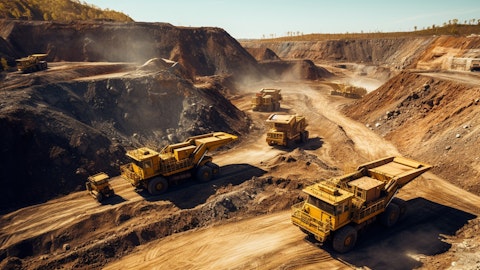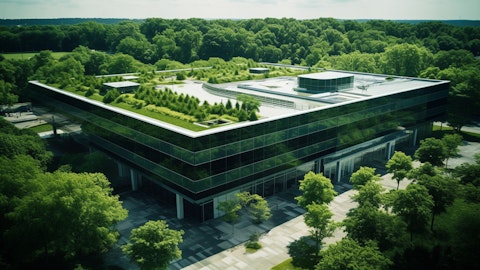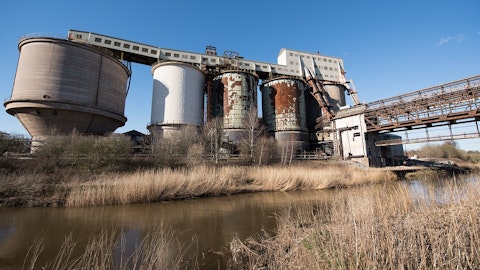Peter Vanacker: Frank, thanks for your question. And absolutely, I mean, you’re right. I mean about what we said on Q3, I mean we didn’t call it guidance. But anyhow, the fact is, of course, I mean that during Q3, there were a couple of elements that happened in the markets. Like, for example, some of our peers had issues with their oxyfuels capacities. They had to take them offline. And due to the fact, of course, that we had our Holy Grail, I call it, of PO facilities in the world’s successfully online, we were able, I mean, of course, to profit from that, not just I mean, with the volumes that we had available, but then also skyrocketing margins in that business. So our team — there’s a lot of details behind it, I mean, how our team was able to steer that between the different regions.
And it shows the agility that we have in that business that we — with those huge capacities that we have available in different parts in the world that we can maximize also the value. Remember, this is a core part of growing and upgrading the core, the first pillar that we have in our strategy. Now we’ve alluded also, if you talk about Q4, we’ve alluded to the fact that we have a normal seasonality in Q4. Kim also said with regards to Oxyfuels margins, they are higher, I mean, than what we have seen historically. We have the capacities, I mean, in place. But of course, one cannot always leverage or a situation whereby competition has issues, I mean, with their units. And therefore, we’ve said, I mean, margins in oxyfuels are going to be more, let’s say, on an above historic level, but not on a peak level like it was in Q3.
And then asset, I mean what is happening, I mean, at polyethylene and polypropylene and the olefins business. So I think we continue to be prudent when we are looking at Q4.
Operator: Our next question comes from the line of Vincent Andrews with Morgan Stanley. Please proceed with your question.
Vincent Andrews : Thank you, Just the Lombard ODA investment, is that purely a financial investment? Or do you have opportunity to interact with the companies and collaborate with the companies that are being invested in? And does that give you an edge on any potential new technologies or things like that?
Peter Vanacker : Yes. Thank you very much, I mean, Vincent, for that question. We’ve been, let’s say, more strategic when we are looking at these kind of investments in funds. So of course, based upon our clearly articulated strategy at the Capital Markets Day, when we look at the second pillar of our strategy, building up a profitable circular and low-carbon solutions business, it’s clear that in that area, we are looking at enhancing also our knowledge on what is happening in the marketplace. So that fund ticks that box because we have more visibility on the market. In addition to that, of course, we also want to make sure that we are supporting these early-stage technologies, companies that were in that fund so that they can continue to grow. So it is not a pure just venture financial investments. It’s much more also looking at it from a strategic and conceptual point of view.
Operator: Our next question comes from the line of Hassan Ahmed with Alembic Global. Please proceed with your question.
Hassan Ahmed: Good morning, peter. A quick one. Recently in the news, there’s been a lot of talk about lower water levels in the Mississippi. So I was just wondering whether that’s impacting you guys in any way or form or broadly the industry as well.
Peter Vanacker : Thank you, Hassan, for your question. No impact, I mean, for our business.
Operator: Our next question comes from the line of Aleksey Yefremov with KeyBanc Capital Markets. Please proceed with your question.





